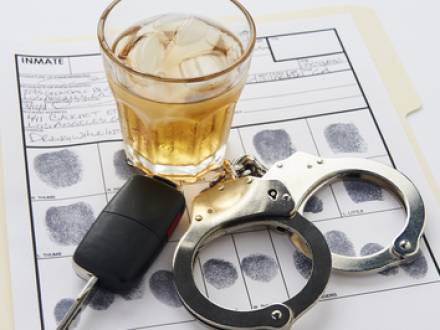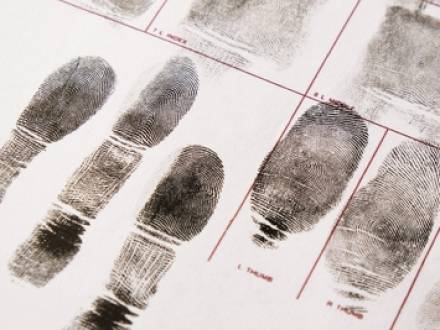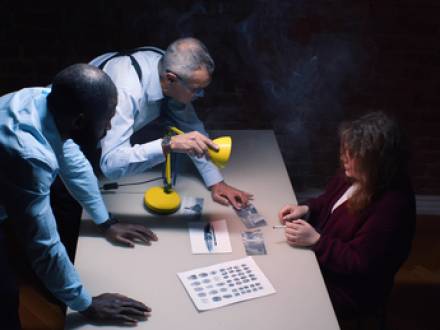Recent Blog Posts
Is Drug DWI Treated Differently From Alcohol DWI in Texas?
 Usually, the term "driving while intoxicated" is associated with alcohol. However, it can also apply to dangerous controlled substances that can impair your faculties. If you are accused of driving while intoxicated by drugs, you could face serious penalties in a court of law. With the help of a Texas criminal defense lawyer, you can fight a drug DWI charge.
Usually, the term "driving while intoxicated" is associated with alcohol. However, it can also apply to dangerous controlled substances that can impair your faculties. If you are accused of driving while intoxicated by drugs, you could face serious penalties in a court of law. With the help of a Texas criminal defense lawyer, you can fight a drug DWI charge.
If you have been arrested on DWI charges, you should get in contact with a qualified legal professional at the earliest opportunity. At Magaña & Van Dyke, we have experience handling difficult, high-stakes cases, including charges of DWI.
What Is the Legal Definition of Driving While Intoxicated in Texas?
According to the Texas Penal Code, you can be considered legally intoxicated if you do not have "the normal use of [your] mental or physical faculties" due to some combination of alcohol, a controlled substance, or a drug in your system. DWI is simply defined as operating a motor vehicle while intoxicated in a public place.
Circumstantial Evidence in Drug Distribution Cases
 Compared to simple possession charges, the penalties for drug distribution in Texas can be strict. This is partly a measure to crack down on the drug trade, as sellers are often viewed as part of a larger problem. However, do not assume that you are safe from distribution charges just because you were not arrested during a transaction. The police can use circumstantial evidence to charge you with possession with intent to deliver, which can come with serious punishments.
Compared to simple possession charges, the penalties for drug distribution in Texas can be strict. This is partly a measure to crack down on the drug trade, as sellers are often viewed as part of a larger problem. However, do not assume that you are safe from distribution charges just because you were not arrested during a transaction. The police can use circumstantial evidence to charge you with possession with intent to deliver, which can come with serious punishments.
A Texas drug crimes defense lawyer can work with you to determine the best strategy for the charges you face. If the evidence against you is not strong enough, an attorney can argue to have the charges reduced or even dropped. At Magaña & Van Dyke, we can represent you in court for charges of possession with intent to deliver.
Can a Drug Stash Indicate Intent to Deliver?
When looking for evidence of intent to deliver, prosecutors may consider the amount of drugs seized. A stash of drugs may not mean anything by itself. However, an exceedingly large quantity of drugs could suggest the stash was not meant for personal use.
The Consequences of Being Placed on the Sex Offender Registry
 Being convicted of a sex crime in Texas can come with hefty punishments. In addition to the threat of fines and jail time, you may be forced to register as a sex offender. This can have a severely damaging impact on your reputation, and depending on the offense, registration may be permanent. If you have been charged with a crime that requires registration, a Texas sex crimes attorney can defend you in court and explore your options to protect your future.
Being convicted of a sex crime in Texas can come with hefty punishments. In addition to the threat of fines and jail time, you may be forced to register as a sex offender. This can have a severely damaging impact on your reputation, and depending on the offense, registration may be permanent. If you have been charged with a crime that requires registration, a Texas sex crimes attorney can defend you in court and explore your options to protect your future.
Sex offenders in Texas are required to adhere to certain rules, that, if violated, could lead to criminal charges. At Magaña & Van Dyke, we can advise you of your rights and explain your options to avoid ending up on the sex offender registry.
The Sex Offender Registry Is Publicly Available
One of the main purposes of the sex offender registry is to alert people of potentially dangerous individuals in their community. As such, information about sex offenders, including identifying information and the crimes they were convicted of, is publicly available. If you are on the registry, people can see your name, a photograph of your face, and your home address. Depending on the perceived risk, schools in your area may be notified of your registration.
Common Reasons for False DWI Arrests in Texas
 A charge of driving while intoxicated (DWI) can be frightening to deal with – especially if you were mistakenly accused of being impaired at the wheel. A Texas DWI conviction can have immediate consequences, ranging from jail time to the suspension of your license. Worse, the long-term effects of a criminal conviction could follow you for years to come. With this in mind, it is important that you challenge any false accusations of DWI.
A charge of driving while intoxicated (DWI) can be frightening to deal with – especially if you were mistakenly accused of being impaired at the wheel. A Texas DWI conviction can have immediate consequences, ranging from jail time to the suspension of your license. Worse, the long-term effects of a criminal conviction could follow you for years to come. With this in mind, it is important that you challenge any false accusations of DWI.
A Texas DWI defense lawyer can provide you with aggressive representation in court, exploring all avenues to support your case. At Magaña & Van Dyke, our criminal defense attorneys are here to fight for your rights, as we treat every client as an individual deserving of respect and dignity.
Medical Conditions Mistaken for Drunkenness Can Lead to DWI Charges
There are a whole host of medical conditions that an unaware police officer might mistake for impairment. For instance, a pronounced speech impediment could be interpreted as intoxication-related slurred speech. If you have been arrested and charged with DWI for a medical condition that is out of your control, our attorneys are ready to advocate for you. We can help compile documentation about your condition and present it for the court’s consideration, making a case for your rights.
What Happens if I Am Accused of Violating Probation?
 In most cases, probation is a preferable alternative to a prison sentence. However, probation comes with terms and conditions that, if violated, could have serious consequences. If you are accused of violating the terms of your probation, it is in your best interests to seek out legal representation. A Texas criminal defense lawyer can help to protect your rights in court, providing you with aggressive representation and strong counsel.
In most cases, probation is a preferable alternative to a prison sentence. However, probation comes with terms and conditions that, if violated, could have serious consequences. If you are accused of violating the terms of your probation, it is in your best interests to seek out legal representation. A Texas criminal defense lawyer can help to protect your rights in court, providing you with aggressive representation and strong counsel.
At Magaña & Van Dyke, we understand how stressful an accusation of violating probation can be. We know that your freedom is at stake, so we will explore all possible avenues as we work toward a favorable outcome.
What Counts as a Probation Violation?
If you have been released on probation, it is important to understand exactly what is expected of you. You may be prohibited from certain acts, like drinking or using drugs. Additionally, you may be required to check in with your probation officer regularly. Making a mistake just once can result in you being brought before a judge, and pleading ignorance will rarely pass as a valid defense.
Intent Matters in Criminal Defense
 When it comes to allegations of criminal offenses, you might assume that the legal proceedings will only involve the hard facts of what happened. However, this is far from the truth. Sometimes, the difference between a conviction and a dismissal could hinge on intent. Proving a lack of intent can be a solid defense against many crimes.
When it comes to allegations of criminal offenses, you might assume that the legal proceedings will only involve the hard facts of what happened. However, this is far from the truth. Sometimes, the difference between a conviction and a dismissal could hinge on intent. Proving a lack of intent can be a solid defense against many crimes.
At Magaña & Van Dyke, we represent clients accused of a wide variety of misdemeanor and felony charges. Our Denton, TX criminal defense lawyers will go over your case to explore all possible strategies for getting the charges reduced or dropped, including an intent-based defense.
What Is Criminal Intent?
The Texas Penal Code defines intent as committing an act with a "conscious objective or desire" in mind, leaving no room for accidents. This term is often used alongside other legal terms of culpability, like "knowingly" or "recklessly" which are less purposeful than intent.
How Much Prison Time Could I Get for a Fentanyl Death?
 Recently, a North Texas couple found themselves facing murder charges after allegedly supplying a woman with fentanyl, which ultimately resulted in her death. The 34-year-old woman was pronounced dead at the scene; the Tarrant County Medical Examiner’s Office ruled the cause of death as fentanyl toxicity.
Recently, a North Texas couple found themselves facing murder charges after allegedly supplying a woman with fentanyl, which ultimately resulted in her death. The 34-year-old woman was pronounced dead at the scene; the Tarrant County Medical Examiner’s Office ruled the cause of death as fentanyl toxicity.
Over the course of the investigation, it was found that two Dallas residents sold fentanyl to the woman prior to her death. There have been multiple fentanyl murder arrests since a state law that created the criminal offense of murder for supplying fentanyl went into effect on September 1, 2023.
If you give or sell drugs to another person that are laced with fentanyl – even if you were not aware of that fact – you could find yourself facing very serious criminal charges. A Cooke County, TX criminal defense attorney can build a comprehensive defense on your behalf, ensuring your rights and your future are protected.
Is the Insanity Defense Actually a Valid Defense?
 Anyone who watches crime dramas on television has probably seen an actor attorney implementing the insanity defense for his or her client. And, on television, this defense seems to work out well for the accused. In reality, "not guilty by reason of insanity" is a defense that is rarely used. The primary drawback of the insanity defense is the potential for defendants to feign or exaggerate mental illness to avoid prison.
Anyone who watches crime dramas on television has probably seen an actor attorney implementing the insanity defense for his or her client. And, on television, this defense seems to work out well for the accused. In reality, "not guilty by reason of insanity" is a defense that is rarely used. The primary drawback of the insanity defense is the potential for defendants to feign or exaggerate mental illness to avoid prison.
Evaluating a person’s mental status at the time of a crime can be extremely subjective and complex. Five different mental experts could have five different opinions regarding a defendant’s sanity, making it extremely challenging to use insanity as a defense. If you are facing criminal charges, it is extremely important that you speak to a knowledgeable Cooke County, IL criminal defense attorney as quickly as possible so that your attorney has time to craft a comprehensive defense on your behalf.
Careful – The Police Can Lie to You During an Investigation!
 While it may seem difficult to believe, the police can—and will—lie to you during a criminal investigation. In fact, police officers are trained in these tactics to lead you into making an incriminating statement. From attempting to persuade you that confessing is in your best interests to working hard to convince you that your behavior is unlikely to result in charges, blatant untruths are extremely common during an investigation.
While it may seem difficult to believe, the police can—and will—lie to you during a criminal investigation. In fact, police officers are trained in these tactics to lead you into making an incriminating statement. From attempting to persuade you that confessing is in your best interests to working hard to convince you that your behavior is unlikely to result in charges, blatant untruths are extremely common during an investigation.
Understanding this is critical so you do not inadvertently say something that will make charges more likely or more serious. Before you meet with a police officer, a police investigator, or a state prosecutor, it is extremely important that you speak to an experienced Cooke County, TX criminal defense lawyer.
Is Police Deception Allowed Under the Law?
Court rulings, including Frazier v. Cupp (1969), have upheld the practice of allowing police to lie to suspects during investigations and interrogations. In this particular case, the court ruled that no constitutional provisions are violated when police officers use deception to elicit a confession (Code of Criminal Procedure 38.22) or trick a suspect into giving the police details about a specific crime. There are very few rules regarding the ability of the police to lie to suspects.
The Importance of Getting Ahead of Texas Criminal Charges
 Although criminal charges can occasionally come out of left field, in many cases, an individual is aware that he or she could be under investigation by law enforcement. If you suspect you could be under investigation, it is extremely important to be proactive.
Although criminal charges can occasionally come out of left field, in many cases, an individual is aware that he or she could be under investigation by law enforcement. If you suspect you could be under investigation, it is extremely important to be proactive.
Rather than waiting in dread until you are arrested, getting ahead of the situation can ensure your rights are protected while positively influencing the outcome of the potential charges. It can be very beneficial to speak to a knowledgeable Cooke County, TX criminal defense lawyer who can guide you through a pre-file investigation.
What is a Pre-File Investigation?
If police think you may have committed a crime, but no formal charges have been made, this is known as a pre-file investigation. During a pre-file investigation, evidence is gathered, and interviews are conducted to determine whether there is sufficient evidence to charge you with a crime. At this stage, law enforcement could also be conducting surveillance (including video and audio recordings) and observing your behavior.






